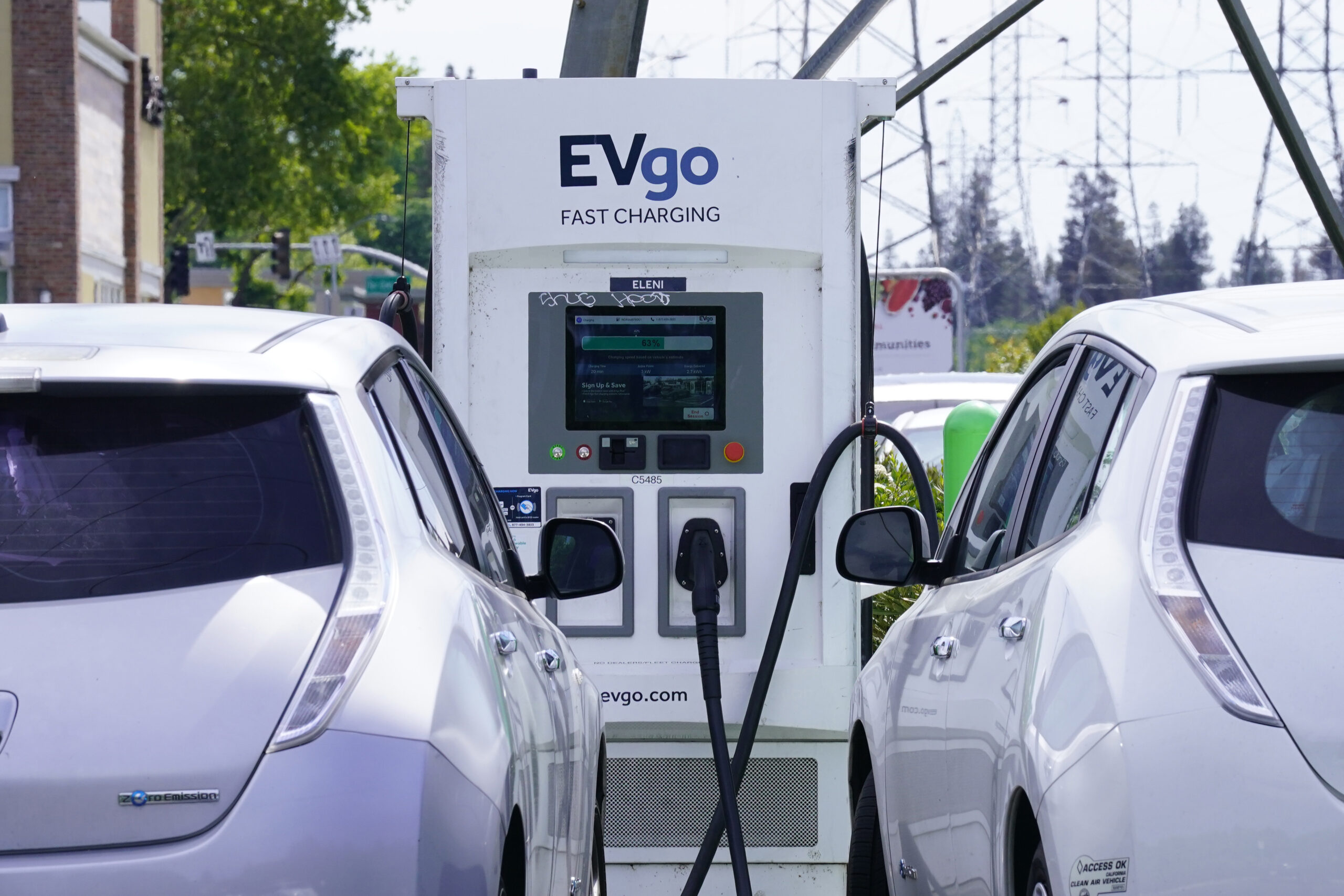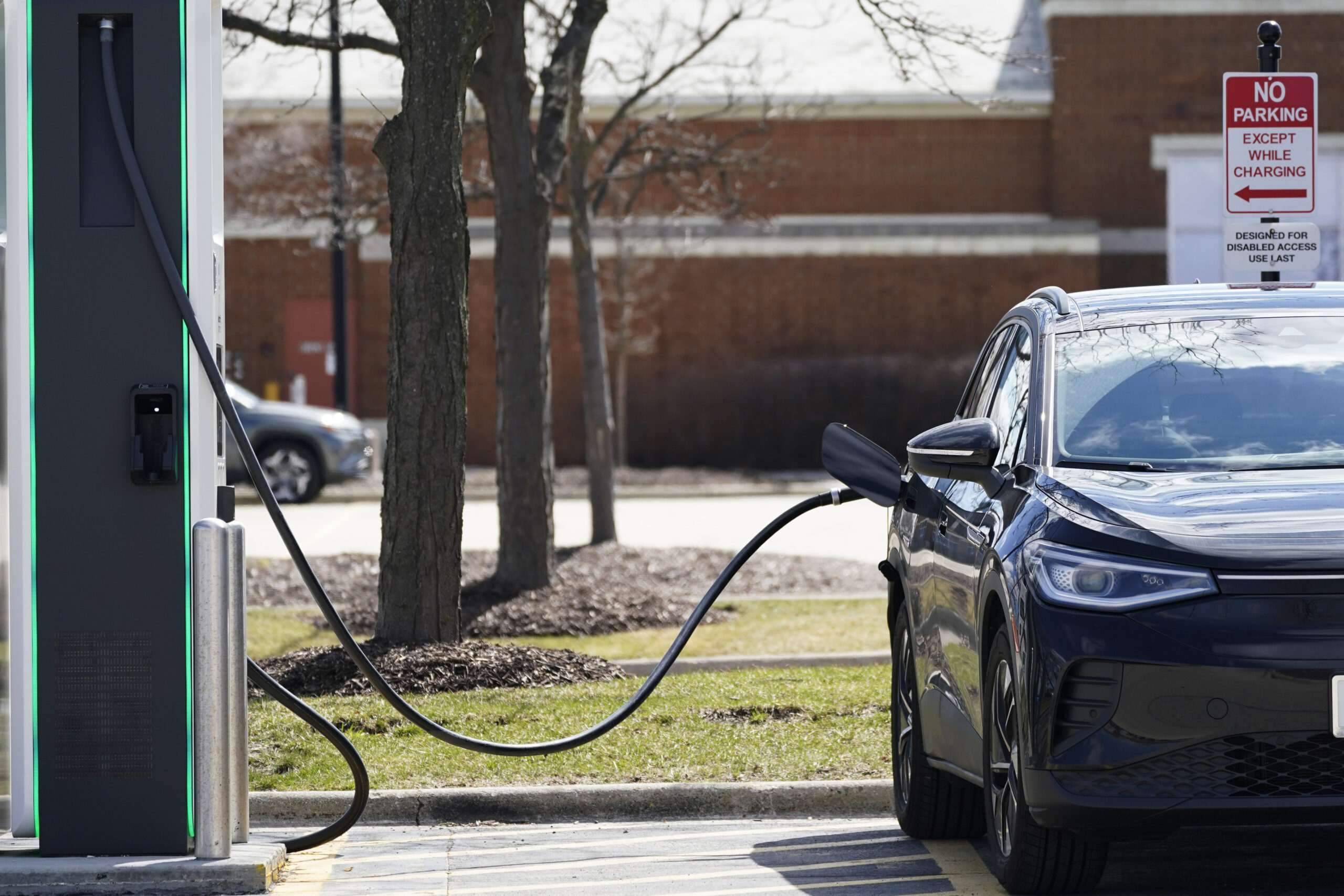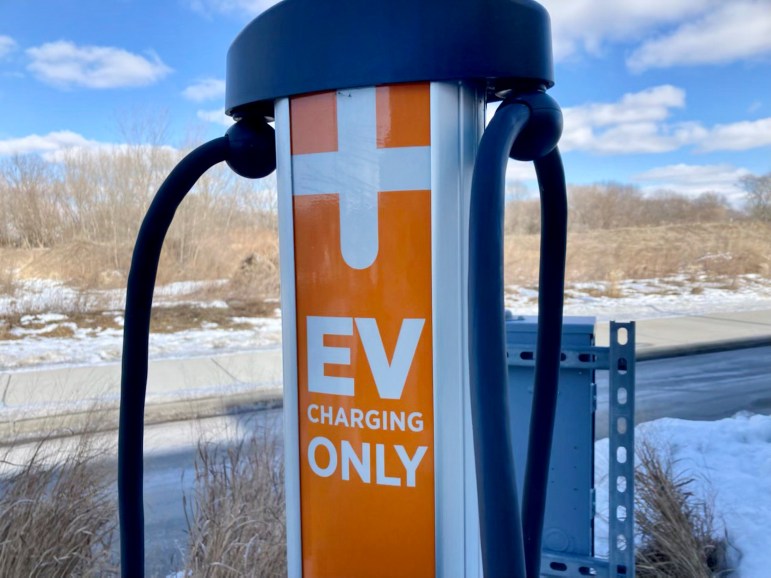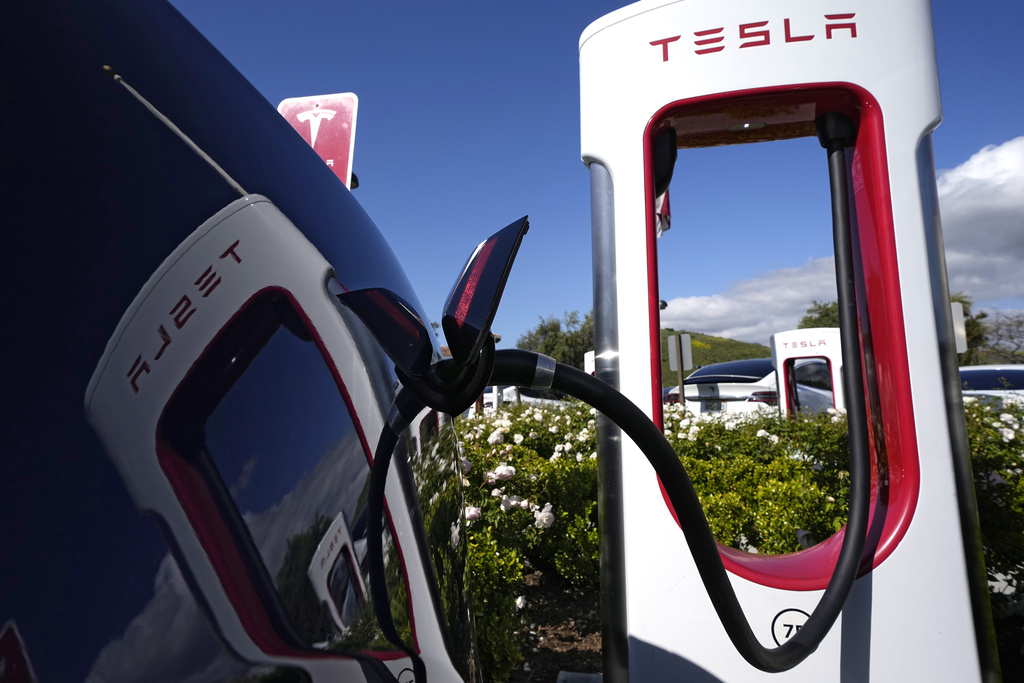People in northwestern Wisconsin could soon find it easier to get around in an electric vehicle after Xcel Energy announced a multi-million dollar plan to expand access to public charging stations. The initiative supports the utility’s new goal to run all vehicles in its service area on carbon-free electricity by 2050.
The utility announced this week that it plans to own and operate 750 high-speed charging stations and 1,500 charging ports in Minnesota and Wisconsin by 2026, of which the vast majority would be installed in Minnesota. Xcel is also expanding its residential and commercial electric vehicle programs and proposing a pilot EV program for people who live in multifamily housing.
“Interest in EVs continues to grow and the expansion of both private and public charging will help customers address range anxiety and achieve significant savings on their transportation costs while delivering cleaner air for everyone,” Mark Stoering, Xcel’s president in Wisconsin and Michigan, said in a statement.
Stay informed on the latest news
Sign up for WPR’s email newsletter.
The announcement comes as automakers and the Biden administration are stepping up efforts to transition to electric vehicles. Last year, President Biden set a goal for electric vehicles to make up half of all new car sales nationwide by 2030. Transportation accounts for the largest share of heat-trapping emissions that contribute to climate change.
Xcel plans to spend about $9.4 million from 2024 to 2026 to install public charging stations across the 28 counties it serves in Wisconsin. Each charging station has multiple ports similar to multiple nozzles at the gas pump. The program would add 80 fast charging ports or 12 megawatts of charging capacity, according to Xcel’s filing with the Public Service Commission.
Xcel spokesperson Brian Elwood pointed to a larger population in its Twin Cities market as a factor in fewer charging ports planned for northwestern Wisconsin.
“They’re just much different marketplaces as well when you look at the population sizes, density and those types of things,” said Elwood.
An analysis by Xcel’s consultant Guidehouse found there are only 10 public fast charging ports across the utility’s service area in Wisconsin. Research shows 59 ports would be needed to support roughly 1,200 registered electric vehicles in the region.
“There’s clearly a need for more fast charging locations throughout northwestern Wisconsin. We intend to build a portion of that,” Elwood said. “But we do expect many other companies and many other businesses will be adding fast charging over the coming years.”
Drivers will be charged a per kilowatt-hour rate for electricity used to charge their vehicles. Xcel would charge anywhere from around 7 cents to 21 cents per kilowatt-hour depending on the time of day, season and market fluctuations. Xcel said that compares to an average of 31 cents per kilowatt-hour that other public stations charge.
Xcel plans to work with communities and site hosts to identify locations for charging stations in urban and rural areas, especially along major highways. The utility plans to use charging hubs that would be offered at truck stops, retail outlets, restaurants and similar locations.
The company hopes to secure funding from the bipartisan infrastructure law to install chargers in Wisconsin.
Wisconsin is set to receive nearly $79 million over the next five years to expand electric vehicle charging stations through the bipartisan infrastructure law. States must show charging stations are installed at least every 50 miles and 1 mile off every exit on major highways designated as an alternative fuel corridor. Wisconsin currently has around 400 charging stations.
Xcel’s proposal is a step toward reaching its goal of powering 1.5 million electric vehicles, cutting carbon emission by 5 million tons each year by 2030. Under the goal, Xcel said customers would save $1 billion on fuel each year and pay the equivalent of $1 per gallon on gas to charge electric vehicles.
To meet its goal, Xcel’s consultant forecasted nearly 46,000 electric vehicles would need to be adopted in northwestern Wisconsin by 2030. That forecast is based on increased investment in public charging and declining electric vehicle costs. Under business as usual, the analysis projects around 10,000 electric vehicles would be on the road across Xcel’s service area by the end of the decade.
Xcel submitted details of its proposal Tuesday. Construction costs for the project will be part of the rate increase case the utility plans to submit next year.
The Edison Electric Institute estimates there are more than 2 million electric vehicles on the nation’s highways. That makes up less than 1 percent of the roughly 276 million vehicles on the road, according to most recent federal data. Wisconsin had 7,521 registered electric vehicles last year, and that number has grown an average of 9 percent each year from 2016 to 2020.
Gov. Tony Evers also announced Tuesday that Wisconsin would collaborate with Illinois, Indiana and Michigan to establish the Lake Michigan Electric Vehicle Circuit Tour. The four states signed a memorandum of understanding to design, maintain and promote a scenic route with reliable charging stations spanning more than 1,100 miles of Lake Michigan shoreline.
“Making our beautiful coastal communities not only more accessible to EVs but protecting them through lower emissions is a win-win for Wisconsin,” said Evers in a statement. “We’re proud to support this multi-state partnership as we work to implement our first-ever Clean Energy Plan and continue our efforts to bolster Wisconsin’s tourism industry.”
The route seeks to drive economic growth and tourism by targeting charging stations near tourist attractions, state parks, lodging, restaurants and other businesses. While many options are available now, the governor’s office said the installation of chargers along the route will wrap up within the next few years.
Wisconsin Public Radio, © Copyright 2024, Board of Regents of the University of Wisconsin System and Wisconsin Educational Communications Board.





